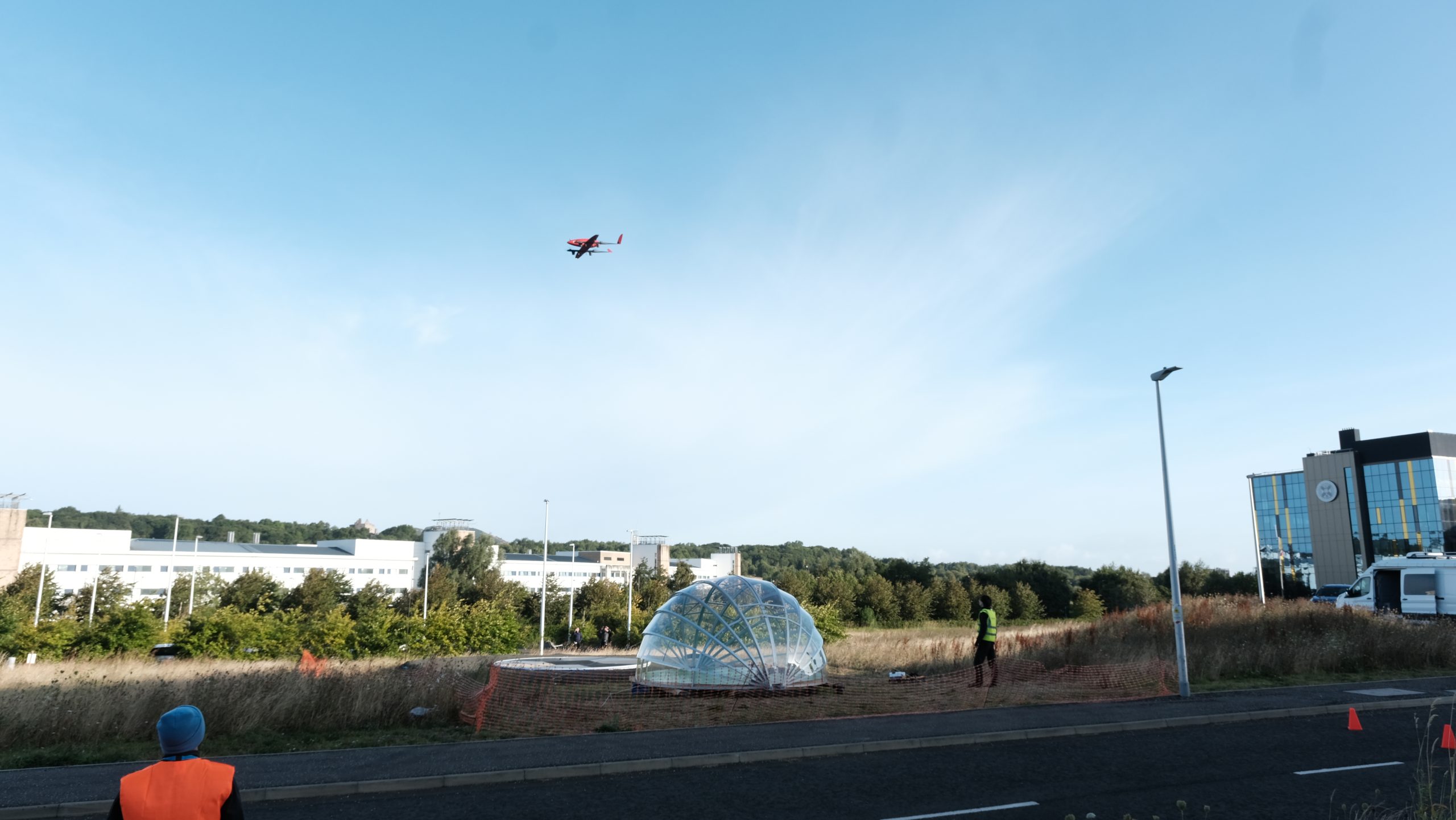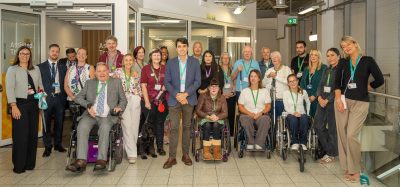Drones successfully transport NHS lab-specimens for the first time
Posted: 27 August 2024 | Gabriel Higgins | No comments yet
Led by AGS Airports in partnership with NHS Scotland, the CAELUS Project have flown drones carrying lab-specimens, taking 35 minutes with the use of combined digital twin technology.
Laboratory specimens have successfully been flown between two NHS boards by a drone for the first time ever. Led by AGS Airports in partnership with NHS Scotland, the Project CAELUS initiative (consisting of 16 consortium partners and funding of £10 million) has flown drones between NHS Lothian and NHS Borders, which took place over three weeks of flight tests. Mike McNicholas, Managing Director for Infrastructure at AtkinsRéalis said: “It is a fantastic step forward for the project to make its first drone delivery and to see the ground infrastructure in use as part of the test flight.”
Why is this important?
Laboratory samples, which inform urgent clinical decision-making, are transported by road between NHS Borders and NHS Lothian which can typically take up to five hours per journey. However, the innovative technology and activity conducted by Project CAELUS could see this delivery take only 35 minutes, enhancing the transport provision, particularly for rural areas.
Join us live: Shaping the Next Generation of Hold Baggage and Air Cargo Screening
Join us live for an insightful webinar on 11th December at 14:00 GMT, in collaboration with Smiths Detection, as we explore the strategic balance of operational efficiency, regulatory compliance, and sustainability in high-volume security environments.
This session offers a focused look into future-proofing your security strategy.
Key learning points
- Cost Reduction: Strategies to minimize bag travel time while simultaneously reducing operational costs.
- Regulatory Roadmap: Insights into the next wave of regulatory changes and their impact on future investment decisions.
- Sustainable Systems: Practical approaches to building sustainability into security systems and lowering the total cost of ownership (TCO).
- Scalable Solutions: Real-world examples of scalable systems supporting current airport growth and preparing for tomorrow.
Register now for expert insights, case studies, and actionable strategies on operational efficiency!
“Transporting laboratory specimens by drone could speed up the clinical decision making allowing for same day diagnosis and treatment,” says Project CAELUS Director, Fiona Smith. The project will also be the first national drone network that can transport essential medicines, blood and other medical supplies throughout Scotland along with remote communities. “Our consortium has been working extremely hard to get to this stage and we are delighted we have been able to test this important use case for the NHS,” continued Ms Smith.
Hazel Dempsey, CAELUS NHS Scotland Programme Leader, further added to the importance of this project by stating: “Our aim, from an NHS perspective, is to explore opportunities where drone technology could benefit patients and NHS services in urban, remote, rural and island landscapes. The NHS is reliant on van logistics that have provided valuable service for decades, however, these can take time, travelling hundreds of road miles each day. In some parts of Scotland, patients who live in remote and rural locations are dependent on ferry or airline availability.
“This project will enable the NHS to consider if drone technology is viable and able to contribute to improving the health and wellbeing of our population. This project will position the United Kingdom and NHS Scotland as a leader in healthcare and aviation industries.”


AGS
How will it work?
Since January 2020, the CAELUS consortium has designed drone landing stations for NHS sites across Scotland and developed a virtual model (digital twin) of the proposed delivery network which connects hospitals, pathology laboratories, distribution centres and GP surgeries across Scotland.
Live flight trials were operated by CAELUS consortium member Skyports Drone Services. The UK-based operator is an experienced provider of drone delivery, survey and monitoring services. The company has a long history of operating medical drone deliveries, including the first drone deliveries with the NHS.
“Using a combination of digital twin technology and live test flights, Project CAELUS is able to trial various prototypes, taking learnings from each iteration to hone designs and land on something that can demonstrate the viability, scalability and efficiency of a drone network for medical deliveries across Scotland,” said Mike McNicholas, managing director for Infrastructure at AtkinsRéalis.
About CAELUS
CAELUS (Care & Equity – Healthcare Logistics UAS Scotland), is part funded by the UK Research and Innovation (UKRI) Future Flight Challenge.
It brings together 16 partners including the University of Strathclyde, Skyports Drone Services, NATS and NHS Scotland.
Stay Connected with International Airport Review — Subscribe for Free!
Get exclusive access to the latest airport and aviation industry insights from International Airport Review — tailored to your interests.
✅ Expert-Led Webinars – Gain insights from global aviation leaders
✅ Weekly News & Reports – Airport innovation, thought leadership, and industry trends
✅ Exclusive Industry Insights – Discover cutting-edge technologies shaping the future of air travel
✅ International Airport Summit – Join our flagship event to network with industry leaders and explore the latest advancements
Choose the updates that matter most to you.
Sign up now to stay informed, inspired, and connected — all for free!
Thank you for being part of our aviation community. Let’s keep shaping the future of airports together!
Related topics
Related organisations
AGS Airports, Future Flight Challenge at UK Research and Innovation (UKRI), NATS, NHS Scotland, Skyports Drone Services, University of Strathclyde

















